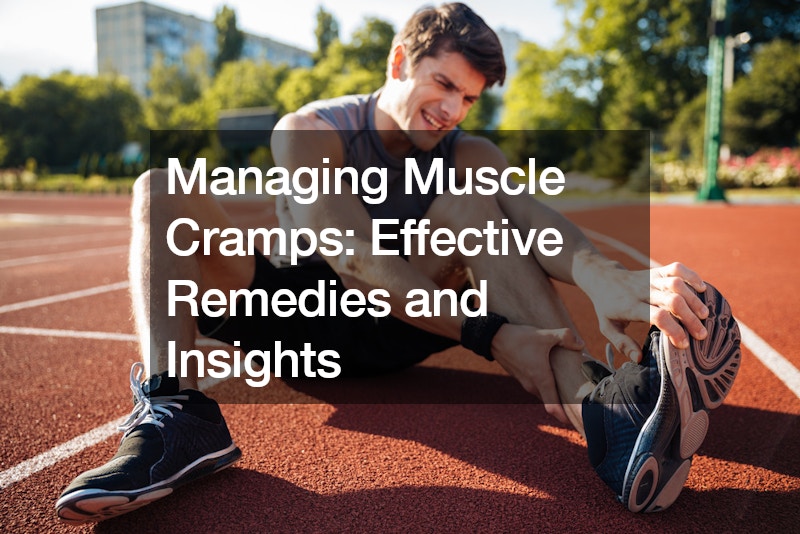

Muscle cramps and spasms, those sudden, involuntary muscle contractions that leave you wincing in pain, are a common experience. They can strike during exercise, at night while you sleep, or even as you go about your daily activities. While generally harmless, the intense pain they cause can be disruptive and frustrating.
This article delves into the causes of muscle cramps and spasms, explores effective remedies for relief, and offers insights that might help prevent them from disrupting your life.
Understanding the Culprits Behind Muscle Cramps
The exact reason behind muscle cramps isn’t entirely clear, but several factors are likely culprits. One theory points to an imbalance in electrolytes, essential minerals that help your muscles function properly.
Dehydration can also play a role, as it disrupts the delicate balance of electrolytes in your body.
Muscle fatigue, often experienced by athletes or those engaging in strenuous activity, can also lead to cramps. As muscles become tired, the signals between nerves and muscles can become confused, triggering involuntary contractions. Certain medical conditions, such as diabetes or nerve disorders, can also increase your susceptibility to cramps.
Soothing the Ache: Effective Remedies for Relief
When a cramp strikes, immediate action is key. Here are some effective remedies to help ease the discomfort:
- Stretch it Out: Gently stretch the affected muscle. This can help lengthen the muscle fibers and encourage them to relax. For example, if you experience a calf cramp, gently flex your foot upwards towards your shin while keeping your leg straight. A massage therapist can also help with targeted stretches to release the tension in the cramped muscle.
- Massage Therapy: A skilled massage therapist can apply targeted pressure and techniques to relax the cramped muscle and improve circulation. This can not only relieve pain but also promote faster healing.
- Heat Therapy: Applying heat, such as a heating pad or warm compress, to the affected area can help relax the muscle and ease the pain. A warm bath can also be a soothing option.
- Hydration: If dehydration is suspected as a contributing factor, rehydrate by drinking plenty of fluids. Water is always the best choice, but electrolyte-rich beverages can also be helpful, especially after exercise or during hot weather.
Long-Term Relief Strategies: Preventing Future Cramps
While there’s no guaranteed way to prevent muscle cramps entirely, certain strategies can significantly reduce their frequency and severity:
- Stay Hydrated: Consistent hydration throughout the day is crucial. Aim to drink plenty of water, especially before, during, and after exercise.
- Maintain Electrolyte Balance: Include a balanced diet rich in electrolyte-rich foods such as bananas, avocados, leafy greens, and nuts. Consult your doctor if you suspect a significant electrolyte imbalance that might require supplementation.
- Stretch Regularly: Regular stretching helps maintain muscle flexibility and reduces the risk of fatigue-induced cramps. Aim for daily stretching routines, focusing on major muscle groups.
- Warm Up and Cool Down: Before exercise, engage in a light warm-up to prepare your muscles for activity. Similarly, after exercise, take time to cool down with gentle stretches to promote muscle recovery and prevent cramps.
- Consider Magnesium: Studies suggest that magnesium may play a role in muscle relaxation. Consult your doctor before taking any supplements, as magnesium can interact with certain medications.
When to Seek Medical Attention
While most muscle cramps are temporary and resolve on their own, some situations warrant a visit to your doctor. Here are some red flags:
- Frequent or Severe Cramps: If you experience frequent or severe muscle cramps that significantly impact your daily life, consult your doctor to rule out any underlying medical conditions.
- Cramps Accompanied by Other Symptoms: If your cramps are accompanied by other symptoms such as fever, weakness, numbness, or unexplained weight loss, seek medical attention to determine the cause.
- Cramps Lasting More Than 10 Minutes: If a muscle cramp lasts longer than 10 minutes and doesn’t respond to home remedies, consult your doctor to rule out any serious issues.
Water Choice: A Surprising Factor?
The type of water you drink might play a role in muscle cramps, particularly for those prone to them. While more research is needed, some evidence suggests that water with high calcium content might contribute to cramps. If you suspect this might be a factor, consider switching to bottled water or using a water filter that removes excess calcium.
However, it’s important to consult your doctor before making any significant changes to your water intake, especially if you have any underlying health conditions.
Conclusion
Muscle cramps and spasms can be a frustrating and painful experience. However, understanding the causes and implementing effective remedies, such as stretching, massage therapy, and proper hydration, can help manage and prevent them. If you experience frequent or severe cramps, reach out to your doctor to rule out any underlying medical conditions. By taking proactive steps, you can continue a life less interrupted by these sudden, involuntary muscle contractions.
.
